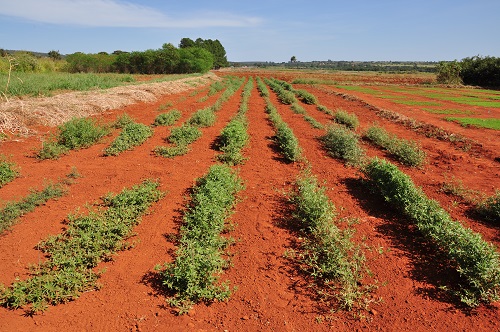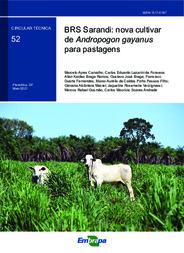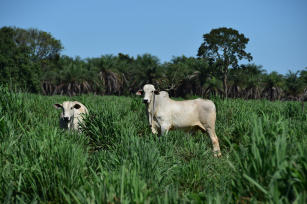Stylosanthes and Andropogon seeds depart for the end of the world
Stylosanthes and Andropogon seeds depart for the end of the world
In 2022 the "doomsday vault", or, officially, the Global Svalbard Seed Vault, is going to receive 322 sample accessions of Stylosanthes guianensis and two samples of two cultivars of Andropogon gayanus: cv Planaltina, the first tropical forage cultivar launched by Embrapa in 1980, and BRS Sarandi, which will be launched in 2022. The samples were sourced from Embrapa Cerrados' forage plant gene bank.
Such gene bank was established in 1976 and stores over 2500 accessions of the main genera and species of tropical forage grasses and leguminous plants with potential for use in livestock production systems, integrated agricultural systems, biomass production systems to generate energy, and also for the development of new products for the bioeconomy. Some of the grass and leguminous species are endemic to Brazil, representing a sample of the biodiversity of the Cerrado biome", explains the Embrapa Cerrados researcher, Marcelo Ayres.
The doomsday is located in a set of remote islands known as the archipelago of Svalbard, in the Artic Circle, in Norwegian territory. It is an initiative by the government of that country in partnership with the United Nations Organization (UN). The project aims to protect genetic material against threats faced by gene banks in the whole world.
The safe was inaugurated in 2008 and, since then, it has received almost a million sample seeds of different species, sent by over 70 countries. The structure was planned to offer protection against catastrophic climate events and even nuclear explosions. The seed chambers are located at a depth of 130 meters, at temperatures below -18ºC and with low humidity, making long-term storage possible.
The implementation of Embrapa's participation was possible thanks to an agreement established between the company and the Royal Ministry of Agriculture and Food of Norway in 2008. Brazil has already submitted over 100,000 samples. In 2022 more seeds from the genetic resources stored in the company's gene banks will be sent there.
Juliana Caldas (MTb 4861/DF)
Embrapa Cerrados
Press inquiries
juliana.caldas@embrapa.br
Phone number: 61 33889945
Translation: Mariana Medeiros (13044/DF)
General Secretariat
Further information on the topic
Citizen Attention Service (SAC)
www.embrapa.br/contact-us/sac/



